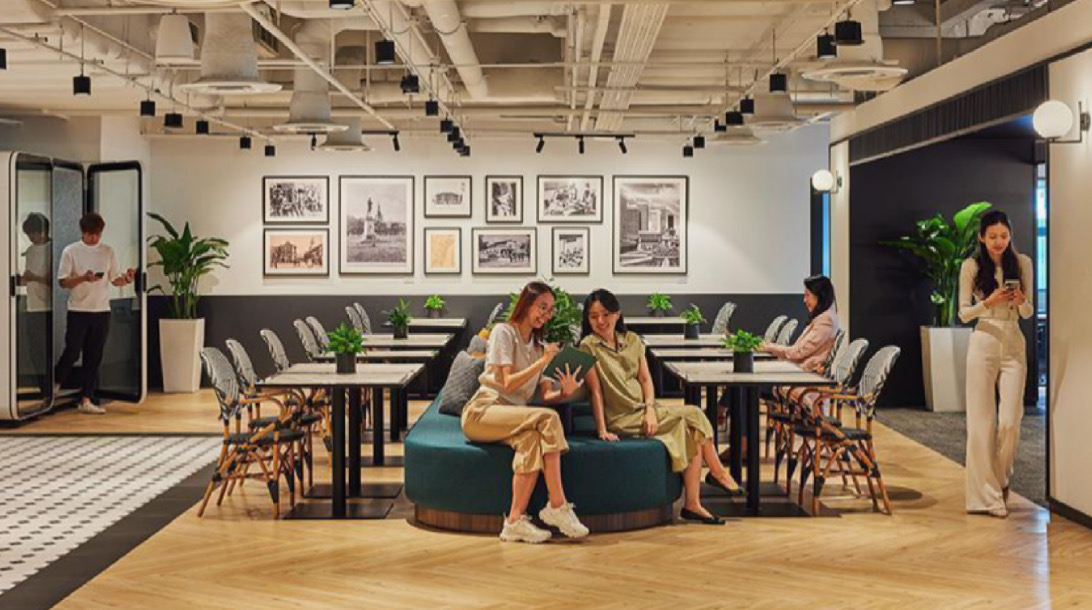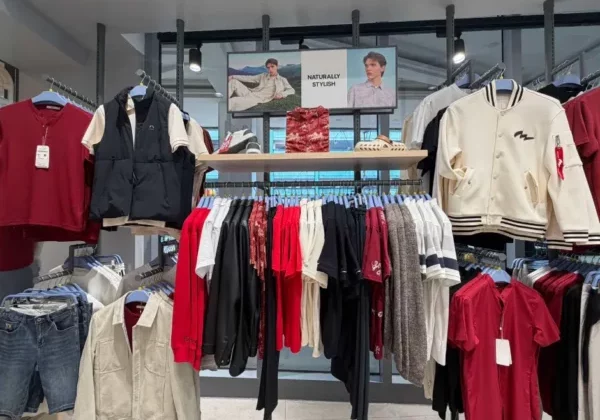Employee happiness remains a priority in SMEs’ consideration of workspaces, despite economic uncertainties

SHARE
Employee happiness remains a priority in SMEs’ consideration of workspaces, despite economic uncertainties
Singapore SMEs prioritise the happiness and wellbeing of employees when choosing workspaces, even in the face of economic uncertainties and challenging times. A new study reveals that more than half of respondents consider employee productivity and wellbeing as one of the top five priorities when making workspace decisions, with one in three citing a lack of wellness facilities as a current workspace challenge.
The SME Workspace Preferences Study, commissioned by JustCo, Asia’s leading flexible workspace provider, and conducted by market research firm Milieu Insight, aims to understand the priorities and challenges faced by SMEs in securing suitable workspaces. This study is particularly timely given Singapore’s progressive move towards supporting flexible work arrangements.
Vital for SME workspaces to promote positive mental states
According to the study, roughly one-third of respondents cite the lack of wellness facilities as a challenge in their current workspace, making it the most common challenge faced by SME employees. Beyond concerns about wellness amenities, SMEs also face two other common challenges in their current workspaces: space constraints and lack of networking opportunities with the wider business community.
A previous survey conducted by Milieu Insight in September 2022 also found that a staggering near-half (49%) of Singapore employees expressed feeling burnout from work at least a few times a month, amidst growing calls to prioritise employees’ mental health.
For employees, well-being starts with food and rest. A well-stocked pantry (47%) and nap rooms or relaxation areas (37%) are among the most popular wellness amenities. Additionally, ergonomic-focused office furnishings emerged as the top consideration for preferred office design and aesthetics (59%).
While wellness amenities are important, the study also reveals that factors impacting employee well-being extend beyond them. Office location (80%), affecting commute times, and strong technology infrastructure (55%) are still considered significantly more important factors.
When asked about their ideal work environment, nearly three-quarters (74%) of SME employees favour “welcoming,” “vibrant,” or “collaborative,” indicating a strong preference for workspaces that promote positive mental well-being. In contrast, “premium” or “traditional” office settings are the least important.
“Our study reveals a trend: wellness and opportunities for networking are undervalued within workplaces. However, a wealth of research supports the positive effects of such amenities and social interaction on employee well-being. As global awareness of mental health rises and lifestyle expectations shift, businesses and employees are placing greater emphasis on wellness and work-life balance,” said Juda Kanaprach, Co-Founder and Chief Commercial Officer, Milieu Insight.
“This shift is likely to result in more businesses integrating wellness into the workplace, through both infrastructure and work arrangements. This will make employee well-being a central pillar of effective workplaces in the coming decade,” added Kanaprach.
The future of work: how the role of workspaces will evolve with the shift towards flexible work arrangements
Many Singaporean SMEs are embracing the shift towards hybrid work arrangements amid the growing emphasis on employee well-being. This aligns perfectly with employees’ continued preference for flexible work options, ultimately fostering a better work-life balance.
According to the study, 32% of SME employees already work mostly remotely or have the option to do so. This number is expected to grow further, following a recent announcement by a tripartite workgroup in April 2024. Starting December this year, all employers in Singapore must establish a process for employees to request flexible working arrangements. Employers are then obligated to give these requests due consideration based on business needs. This signifies a future shift towards a more dynamic utilisation of workspaces, with an emphasis on space optimisation and supporting the different work modalities enabled by flexible work models.
With more flexi-work arrangements on the horizon, offices need to not only foster environments that take care of employees’ wellbeing, but also assume the role of strategic nodes of collaboration and community-building. The study found that many employees desire workspaces that offer both flexibility and support for communal activities. Specifically, 58% of respondents expressed a desire for offices that are both flexible and adaptable, while 37% valued a strong focus on community at their workplace.
The community aspect of workspaces is recognised as beneficial for employees, providing both support and vibrancy (53%). In line with Singapore’s long-term urban master planning and the anticipation of future workforce decentralisation, businesses should foster environments that demonstrate the value of returning to the office, when necessary, while also granting employees flexibility.
SMEs seek flexible workspaces amidst changing needs
Despite a preference for workspaces that promote employee wellbeing and community-focused working styles, factors like space flexibility and budgetary constraints ultimately take precedence for SMEs in their quest for the perfect office. When searching for workspaces, more than half of decision-makers cite the lack of affordable options in their desired location as a top-five challenge. Additionally, 41% of decision-makers find that workspaces lack the flexibility needed to adapt to changing needs.
Long-term commitment of rental leases (44%) can also be tricky in the face of dynamic changes and economic uncertainties.
“SMEs are rethinking what constitutes their ideal workspace. While cost and location remain important, decision-makers are increasingly seeking functional spaces that prioritise employee well-being beyond just productivity. The changing work landscape and economic uncertainties further emphasise the need for flexibility to adapt. Workspace solutions that encompass functionality, wellness, and flexibility will be key for SMEs to thrive in the long run,” said Kong Wan Long, Co-founder and Chief Commercial Officer, JustCo.
Methodology
The SME Workspace Preferences Study is an online survey of 800 SME employees, comprising 300 decision-makers and 500 general employees. It was undertaken between 26 March and 7 April 2024. Respondents are employees of Singaporean SMEs, which are enterprises registered in Singapore with 200 or less employees and an annual sales turnover of less than SGD 100 million.
*Cover Photo/Thumbnail Photo from JustCo
RELATED ARTICLES

Faith First, Business Forward

Should I Involve God When Starting My Business?

Cupid’s Picks: Thoughtful Valentine’s Day Gifts For Your Special Someone

Peace Over Business Stress, But How?











